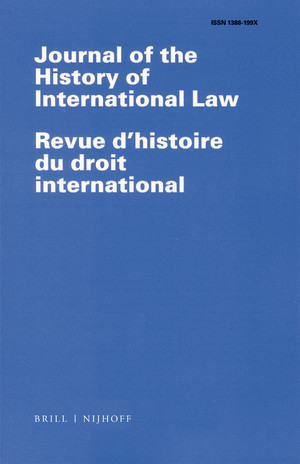(image source: Brill)
Abstract:
Grotius is the father of modern international law. The indivisibility of sovereignty was the sine qua non of early-modern conceptual innovation in law. Both statements are axiomatic in the mainstream literature of the last two centuries. Both are profoundly and interestingly wrong. This paper shows that Grotius’ systematisation of public and international law involved defining corporations as potentially (and the VOC actually) integral to reason of state, and able to bear and exercise marks of sovereignty under certain conditions. For Grotius, some corporations were not subsumed under the state’s legal authority, nor were they hybrid ‘company-states’. Instead, states and such corporations, able and forced to cooperate, fell under dovetailing natural, international, and municipal systems of law. The paper reexamines Grotius’ notion of international trade, public debt, private corporation, and public and private war through the reassembled prism of these dovetailing laws and the category of societas that underpins Grotian associations. It is argued that although formulated around the new East India trade, the actual reality of legal pluralism was available to Grotius in the Dutch trade experience of the sixteenth century.
(read more with Brill: DOI 10.1163/15718050-12340170)

